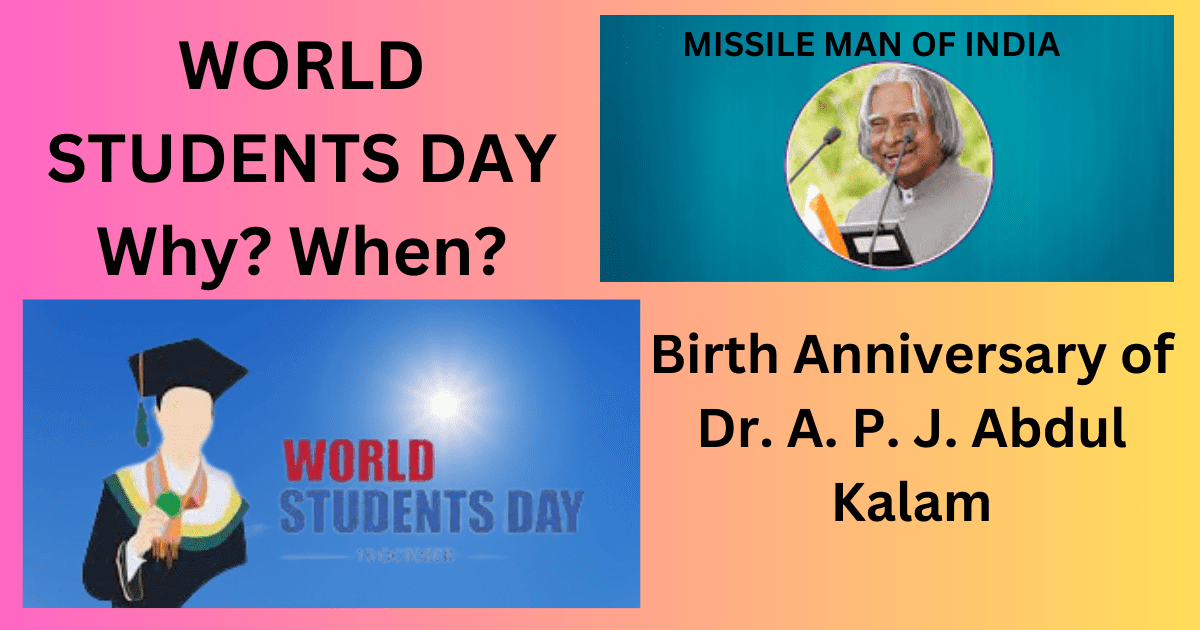World Students Day, 15th October, Birth Anniversary of former President, Dr. APJ Abdul Kalam, Themes, Most Important Significance
World Students Day: World Students Day is celebrated on 15th October every year on the birth anniversary of the late aerospace scientist, teacher, and former President, Dr. APJ Abdul Kalam. This occasion is celebrated nationally in India every year to acknowledge the efforts of Kalam towards students and education. Kalam is fondly remembered as “People’s … Read more
